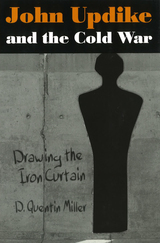2 start with J start with J

Incisive insights into the distinctive nature of Japanese foreign intelligence and grand strategy, its underlying norms, and how they have changed over time
Japanese foreign intelligence is an outlier in many ways. Unlike many states, Japan does not possess a centralized foreign intelligence agency that dispatches agents abroad to engage in espionage. Japan is also notable for civilian control over key capabilities in human and signals intelligence. Japanese Foreign Intelligence and Grand Strategy probes the unique makeup of Japan's foreign intelligence institutions, practices, and capabilities across the economic, political, and military domains and shows how they have changed over time.
Brad Williams begins by exploring how Japan’s experiences of the Second World War and its new role as a major US ally influenced its adoption of bilateralism, developmentalism, technonationalism, and antimilitarism as key norms. As a result, Japanese intelligence-gathering resources centered primarily around improving its position in the global economy throughout the Cold War. Williams then brings his analysis up to the Abe Era, examining how shifts in the international, regional, and domestic policy environments in the twenty-first century have caused a gradual reassessment of national security strategy under former prime minister Shinzo Abe. As Japan reevaluates its old norms in light of regional security challenges, the book concludes by detailing how the country is beginning to rethink the size, shape, and purpose of its intelligence community.
Anyone interested in Japanese intelligence, security, or international relations will welcome this important contribution to our understanding of the country's intelligence capabilities and strategy.

One of the most enduring and prolific American authors of the latter half of the twentieth century, John Updike has long been recognized by critics for his importance as a social commentator. Yet, John Updike and the Cold War is the first work to examine how Updike's views grew out of the defining context of American culture in his time—the Cold War. Quentin Miller argues that because Updike's career began as the Cold War was taking shape in the mid-1950s, the world he creates in his entire literary oeuvre—fiction, poetry, and nonfiction prose—reflects the optimism and the anxiety of that decade.
Miller asserts that Updike's frequent use of Cold War tension as a metaphor for domestic life and as a cultural reality that affects the psychological security of his characters reveals the inherent conflict of his fictional world. Consequently, this conflict helps explain some of the problematic relationships and aimless behavior of Updike's characters, as well as their struggles to attain spiritual meaning.
By examining Updike's entire career in light of the historical events that coincide with it, Miller shows how important the early Cold War mind-set was to Updike's thinking and to the development of his fiction. The changes in Updike's writing after the 1950s confirm the early Cold War era's influence on his ideology and on his celebrated style. By the Cold War's end in the late 1980s, Updike's characters look back fondly to the Eisenhower years, when their national identity seemed so easy to define in contrast to the Soviet Union. This nostalgia begins as early as his writings in the 1960s, when the breakdown of an American consensus disillusions Updike's characters and leaves them yearning for the less divisive 1950s.
While underscoring how essential history is to the study of literature, Miller demonstrates that Updike's writing relies considerably on the growth of the global conflict that defined his time. Cogent and highly readable, John Updike and the Cold War makes an important contribution to Updike scholarship.
READERS
Browse our collection.
PUBLISHERS
See BiblioVault's publisher services.
STUDENT SERVICES
Files for college accessibility offices.
UChicago Accessibility Resources
home | accessibility | search | about | contact us
BiblioVault ® 2001 - 2024
The University of Chicago Press









